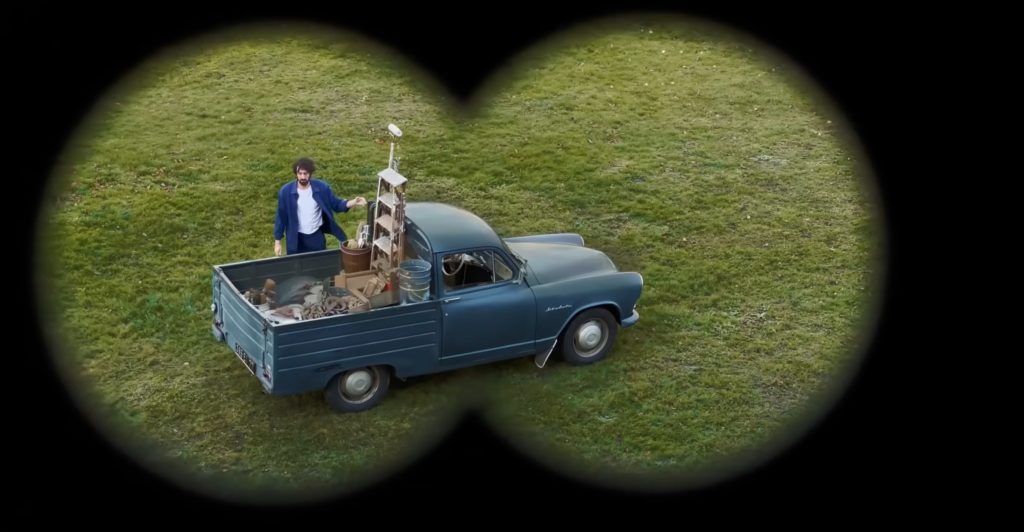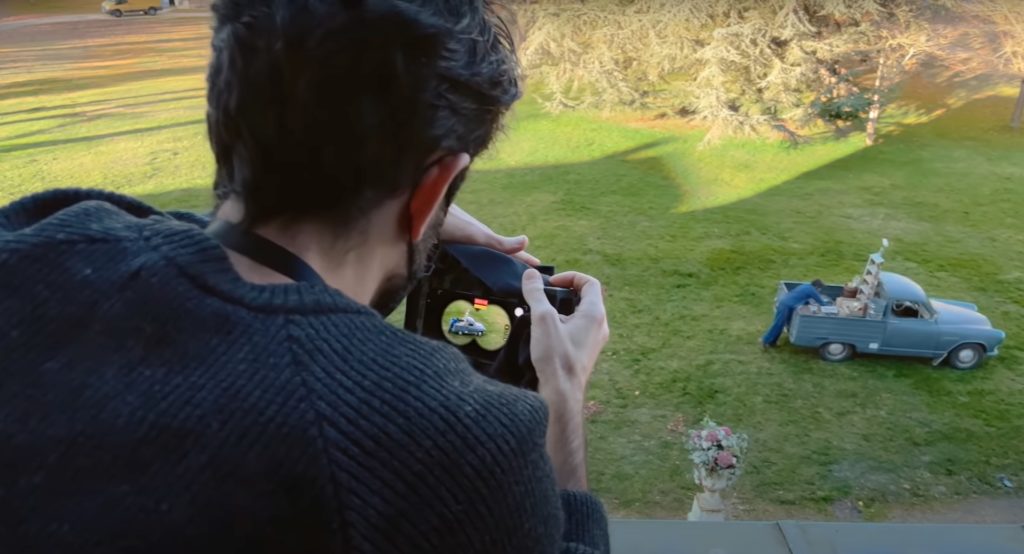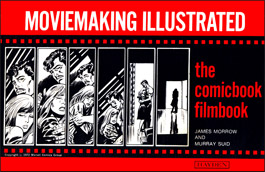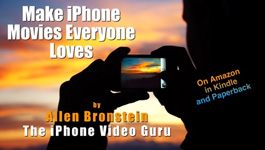In the early 16th century, the word aftermath referred to the second harvest of grass. A century later, the meaning darkened, referring to the consequences of unpleasant events. Such happenings often trigger intriguing stories. And that brings us to Christopher English’s “Aftermath,” a teaser in which he explores ideas for a post-apocalyptic movie. In the interview below, English discusses the production of the teaser and where it’s leading him.
Interview with Christopher English
MobileMovieMaking: Where are you located?
English: Poconos, Pennsylvania by way of Queens, New York.
MobileMovieMaking: What motivated you to become a filmmaker?
English: I’ve always been a creative. From third grade I used to draw comic books. In junior high the school newspaper did an article on me. I went to the High School of Graphic Communication Arts and used their printing presses to print out my own version of Heavy Metal magazine. I also programmed my own video games that I created on my Tandy Color Computer 3 and sold them as shareware. I even got them reviewed in a computer magazine. I’ve produced music and landed my songs in a few commercials and TV shows as well. My day job is as a graphic designer. Filmmaking is another step in my journey. Now those stories that I used to make up for my comic books, I can bring to life in my films.
MobileMovieMaking: How did you develop your moviemaking skills?
English: When I was making computer games, I purchased every computer magazine on the market. Whether I owed that computer or not, I was just that into it. With filmmaking, for two years I watched every YouTube video about filmmaking and everything on every camera even though I only owned a smartphone. I totally immersed myself in everything I could learn about script writing, directing, cameras, lighting and color grading.
MobileMovieMaking: Are there any filmmakers who influenced your approach to making movies?
English: One day while searching through YouTube, I came across one of Patrick Levar’s videos on “mobile filmmaking.” After watching the video I was amazed. I could make movies with my phone? It was like a light switch went on. Patrick was the one who inspired me, and later I got to work on a short film with him, which was a total high point for me.
MobileMovieMaking: Where did that lead you?
English: The next phase in my journey was when I came across Simon Horrock’s, “Silent Eye” series. Here was a series along the lines of Black Mirror than was running on Amazon and shot on a phone. So I joined his Facebook group and started interacting with others who were creating on smartphones.
MobileMovieMaking: Do you have a favorite director?
English: Zack Snyder. As a creative, I love his visual style. When I saw his “Snow Steam Iron” short film I was amazed at how similar his work on a phone was to his work in films. Honestly, this is the best looking smartphone film in my opinion to date and the average person would be hard pressed to tell that this was shot with a phone. That’s my ultimate goal. To create something the average person can’t tell was shot with a phone. A lot of creators label their shorts as “shot with an IPhone. I don’t. I want my films to stand on their own merit. People tend to think that those who use smartphones can’t afford proper cameras but that’s not always the case. Some of us actually want to use a smartphone.
MobileMovieMaking: What gave you the idea for “Aftermath”?
English: I always wanted to make a post-apocalyptic movie. I thought the masks were cool but after watching a ton of them on YouTube, they all seemed pretty much the same. I held off because I wanted whatever I did to stand out. To be different. Then one day while browsing YouTube I came across an old trailer for the video game, “Fallout.” It hit me that THIS was the style I would do my film in. I loved the direct contrast between what was happening on the screen and that of the music that was playing. Though I never played the game, I started reading up on the lore of the “Fallout” world while creating a back story for my own post-apocalyptic world. It seemed to work because when I posted the trailer in Facebook groups, people really seemed to react well to it. The feedback was definitely positive.
MobileMovieMaking: How did you plan the teaser?
English: Since I write and direct my films, I tend to have all my ideas in my head. I did write a script though.
MobileMovieMaking: Could you talk about how you cast the teaser?
English: The actor in my teaser is my stepson, Keanu Vera. He’s in a lot of my short films. It’s easier to shoot with a family member because you always have access. The narrative is done by an AI program called, Speechelo. I use this a lot in my shorts as I don’t have to worry about finding voice actors. In this case, it’s meant to be temporary as the final film will be narrated by my cousin, Wor Whosane who’s done the voiceovers in some of my other shorts. People really love his voice and that will add to the uniqueness of the film as well. The costume design was inspired by my love for anime, “Trigun” in particular. I didn’t want to do the standard gas mask thing that everyone else has done. For the actual film, with the help of my wife, Roni Percy-English, we will be tweaking said costume even more.
MobileMovieMaking: What about the locations? They really look post-apocalyptic.
English: The film was shot in around abandoned spots and state parks in North East Pennsylvania.
MobileMovieMaking: What gear did you use?
English: I shot with an iPhone 11 given to me by my daughter. My current financial situation has me utilizing a Moto G Power to shoot my shorts so I appreciate the iPhone. In addition, I used a Zhiyun Smooth 5 and the natural light of the great outdoors.
MobileMovieMaking: And the camera app?
English: I shot it with Protake as opposed to FiLMiC Pro. It can do near everything that FiLMiC Pro can but with a much simpler interface. I absolutely hate the ISO/shutterspeed reticle.
MobileMovieMaking: How about the editing software?
English: I’ve edited all my films with Filmora. I know a lot of folks think of this consumer level editor as a toy but it’s pretty powerful and getting more so with every update. I am teaching myself DaVinci Resolve as well.
MobileMovieMaking: What are the advantages of shooting with a mobile device rather than a traditional camera?
English: The biggest advantage is that I can walk around and shoot without attracting too much attention, though my costumes do that. The only disadvantage is that with the iPhone 11 I don’t have the depth of field that I’d like and my current financial situation won’t allow me to upgrade or get a DOF adapter.
MobileMovieMaking: How long did the shooting take?
English: About 5 days, but I was shooting for the actual film.
MobileMovieMaking: During the shoot, did you encounter any unexpected problems.
English: Shooting was pretty smooth actually. I got a lot of stares because of the costume and I received a ticket for shooting at an abandoned factory… But a $15 ticket was cheaper than a permit!
MobileMovieMaking: Was there anything special about creating the sound track?
English: As a music producer myself I knew exactly the feel that I was going for, and I found the most wonderful music on Artlist. You’re really going to like the sounds you hear in this film.
MobileMovieMaking: Could you talk about your approach to editing the teaser?
English: I don’t use mobile apps to edit any of my films. I’m much more comfortable on the computer. For this film, Filmora Pro and Filmora 11 were my editors of choice.
MobileMovieMaking: How do you feel about the finished teaser?
English: The video looked really good, and it’s garnered the interest of people. But there wasn’t much story. So this fall I’m reshooting the majority of it because I have an epic new story I want to tell. I’m thinking about making this a feature film instead of a short. I’ll be launching an Indiegogo campaign to try and fund it. I expect to finish the film by the end of fall.
MobileMovieMaking: What advice would you give to someone who is starting out making movies?
English: Just start filming. Don’t wait till you have the right equipment or camera. Just shoot. If you visit my YouTube channel, you’ll see some stuff that’s pretty good and some things that aren’t. I leave my mistakes up for all those to see because everything I’ve done is a learning experience.
MobileMovieMaking: In addition to YouTube, how can readers keep up with you and your work?
# # #
The editors of MobileMovieMaking have chosen “Aftermath” as the Mobile Movie of the Week.



 Previous post
Previous post
 Next post
Next post





